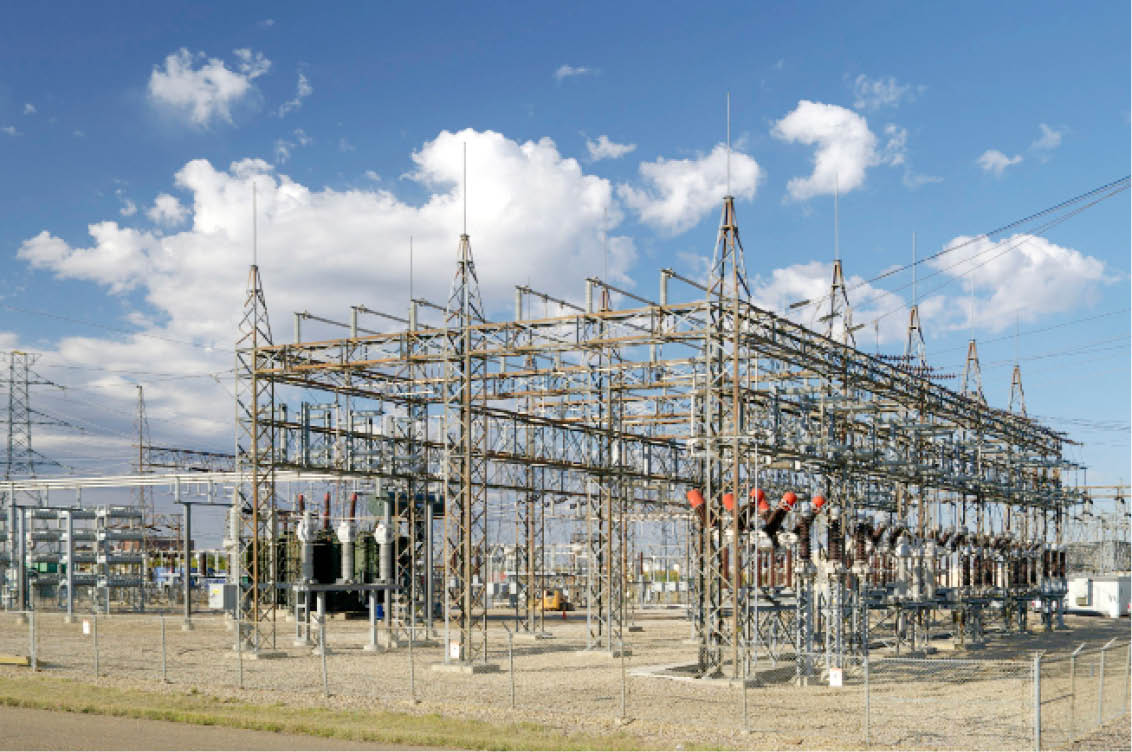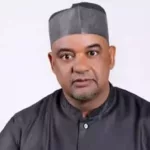The Bible says: ‘In the beginning God created the heaven and the earth. And the earth was without form, and void; and darkness was upon the face of the deep. And the Spirit of God moved upon the face of the waters. And God said, Let there be light: and there was light.’ Genesis 1:1-3
For the past few weeks, and for some utterly strange reason, this verse has ingrained itself in my mind and has become a prayer point for me. Ya Allah, I pray, let there be light today. Let there be electricity at work so that I may actually be productive. Let there be electricity to alleviate the extremes of temperature we are currently facing in the North. Let there be electricity, so that our EMR (Electronic Health Records) may work. So that the machines at the lab and radiology can work. So that there can be water running from the taps. Dear God, let there be light so that patients can pay for their services at the cashier seamlessly. So that the drugs in the fridge are stored at the required temperature. So that the health workers on call at night do not suffer the embarrassment of using torches and mosquito coils. So that the hospital does not have to pay the exorbitant price of diesel at N750-800/litre.
Ya Allah, let there be light at home so that the things in my fridge do not go bad. So that I may sleep peacefully with the air conditioner and so that I do not have to calculate the amount that is spent on diesel. Ya Allah, let there be light so that I may retire my generator and the cost of living and doing business may reduce. So that the goods and services I pay for may depreciate or at the very least stop appreciating due to the cost of diesel.
Ya Allah, Let there be light, Kawai!
Sometimes, when I am overwhelmed by the heat (which I presume is the genesis of my epileptic weakness of faith) and frustration at being able to achieve my targets- I ask myself: Is it too much to ask for? Constant electricity?
Nigeria’s power generation is mostly thermal and hydro with installed capacity of about 12,522 MW. The country is part of the Economic Community of West African States and part of the West African Power Pool (WAPP), a specialized agency of ECOWAS that includes 14 of the 15 countries in the regional economic community. WAPP was initiated to promote and develop power generation and transmission infrastructures as well as to coordinate power exchange among the ECOWAS member states. Nigeria currently supplies electricity to the Republic of Benin, Togo, and Niger.
In 2013, the government of Nigeria privatized 11 electricity distribution companies (DISCOs) and six generating companies (GENCOs) while retaining 100% ownership of the Transmission Company of Nigeria (TCN) as part of a wider strategy to reform the sector and stimulate growth. The country’s ongoing comprehensive power sector reforms are aimed at expanding capacity, increasing electricity access, and upgrading transmission.
It is no secret that the Nigerian power sector requires significantly more investment to achieve reliable power supply. Industry operators estimate that the country will require as much as $100 billion in investment over the next 20 years to main current service. Currently, the World Bank is financing a $486 million International Development Association credit for the Nigerian Electricity Transmission Access Project (NETAP), part of the Transmission Rehabilitation and Expansion Programme (TREP). The goal of TREP is to support the rehabilitation and upgrade of Nigeria’s electricity transmission substations and lines. This will expand the power transmission network and capacity, allowing distribution companies to improve reliability and supply to consumers.
As a Nigerian who views the glass as half empty, this simply means that constant electricity might not be forth coming in my lifetime. Perhaps, in my children’s generation.
The importance of power to socio-economic development, creating myriad of opportunities for Micro, Small and Medium Enterprises (MSMEs) to thrive, cannot be overemphasised. For a nation like Nigeria where MSMEs constitute a large percentage of its economic activities, the power sector must be well positioned in its desire for economic prosperity.
I have lost account of the number of businesses that have failed and packed up due to poor electricity. Water vendors have increased their price because there is no electricity to power the community bore holes from which they get their water. A 25 litre jerrycan of water now sells from N70 from the previous price of N20 – N25. Water which is a necessity of life has now become unaffordable. Lack of potable water leads to diseases associated with water scarcity. And just like that, the vicious cycle of disease and poverty fuelled by lack of electricity continues.
Private hospitals, despite increasing their rates, spend more than N50,000 on diesel per day. A friend who owns a saloon, said she spends N38,000 per day on diesel. Pray tell, how many heads can one wash or how many pedicures will she do to cover that extra expense in a month? Businesses all around us are struggling and calling it quits due to poor electricity. And what does this translate to? Poverty. The death of a business, especially a small scale one, means that many employees, including the owner of the business, will lose substantial income thereby plunging them into poverty. Breadwinners who shoulder the responsibility of their immediate families and sometimes their extended family members as well, suddenly find themselves without a source of income. And all because the government has failed to supply constant electricity 62 years after independence.
I have lost count of the number of times that the National grid has ‘collapsed’ this year alone. At this rate, I am surprised it has not been admitted into the ICU and put on a ventilator. I am tired of hearing all the usual reasons: low water level in the hydro dams due to decreased rainfall, vandalism, insecurity, lack of transparency, corruption, poor governance, blah blah blah. These reasons have been over flogged abeg!
I have also grown increasingly weary of all the numerous solutions so far: Renewable energy, power conservation, public-private partnership, better training of staff, ati be be lo. Can all Nigerians afford solar inverters? How much solar energy is required to power a basic 64 slice CT Scan machine or a 1.5-3 tesla MRI machine? How much are we willing to invest in renewable energy to ensure all the fancy equipment in the ICU and surgical theatres have electrical supply 24/7?
These days, when I hear of people purchasing N100m presidential forms, all I think of is how all that money could be used to address the miserly electrical supply in this country. Or is that those who have the ability to buy these forms have no idea of the light situation of this country? Is it like the case of Queen Marie-Antoinette who, when the peasants protested the rising price of bread in the kingdom asked: ‘Why don’t they eat cake?’
Are they really oblivious to the suffering caused by poor electrical supply?
These days, whenever the erratic electrical supply works me up, I wish God would extend his benevolence to Nigerians again and say ‘Let there be light!’
And just like that, our electrical problems will disappear.

 Join Daily Trust WhatsApp Community For Quick Access To News and Happenings Around You.
Join Daily Trust WhatsApp Community For Quick Access To News and Happenings Around You.


